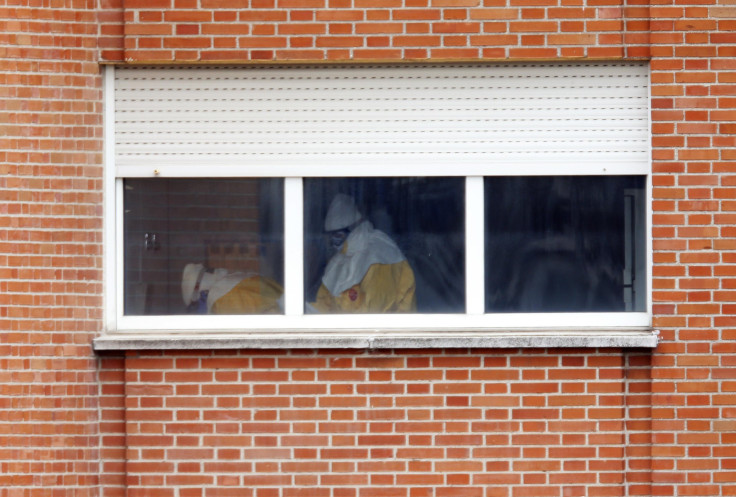Ebola Monitoring Rises As Spain Tries To Contain Health Crisis

MADRID (Reuters) - Sixteen people were being monitored in a Madrid hospital for signs of Ebola on Saturday, with patient numbers rising as the Spanish government tries to contain recriminations over how it has handled the first outbreak of the disease outside Africa.
A nurse who contracted the virus after caring for two infected priests repatriated to Spain remained seriously ill. Teresa Romero, 44, is so far the only person who has tested positive for Ebola through a transmission in the country.
The latest outbreak of the disease has already killed more than 4,000 people, mostly in West Africa, and the Spanish case has raised concerns about contagion in Europe.
Three more people who came into contact with Romero - a hairdresser, another nurse and a cleaner - were admitted to the isolation unit at the Carlos III hospital on Friday evening. None of the 16 now being monitored, including Romero's husband, have shown Ebola symptoms.
Spain's government attempted to stem an outcry over its response by tightening Ebola detection protocols on Friday and putting Deputy Prime Minister Soraya Saenz de Santamaria in charge of handling the health crisis, five days after the contagion was confirmed.
Amid disquiet in Spain over how the virus could have spread, some officials initially deflected blame on nurse Romero, seizing on her admission that she may have touched her face with the gloves of her protective suit.
Angry health workers jeered Prime Minister Mariano Rajoy on Friday as he visited the hospital, throwing surgical gloves at his car, while unions and the public have also laid into the government for its slow response.
Romero remained undiagnosed for days despite reporting she had a fever, one of the symptoms of Ebola.
"The bad way this crisis was handled by politicians proved fertile ground for panic," El Mundo newspaper said on an editorial on Saturday, describing the case of one school which wanted a nurse to keep her child away, because she worked in another Madrid hospital where Romero was first admitted.
Three hairdressers were among those under observation on Saturday, after Romero visited a salon for a beauty treatment before she was diagnosed.
Patients also included five doctors, a hospital porter and four nurses, one of whom had also cared for one of the repatriated priests, and tested negative for Ebola in an initial examination. The two priests died of the disease.
Romero was now being treated with ZMab, some Spanish media, including El Pais said. The combination drug was one of the agents used to make ZMapp, an experimental treatment which has been used on some Ebola sufferers, a number of whom survived.
Spain's health ministry and hospital authorities declined to comment, while the government had no immediate comment.
Medical staff had been giving Romero antibodies from previously infected patients earlier this week.
(Reporting by Sarah White; Editing by Stephen Powell)



























